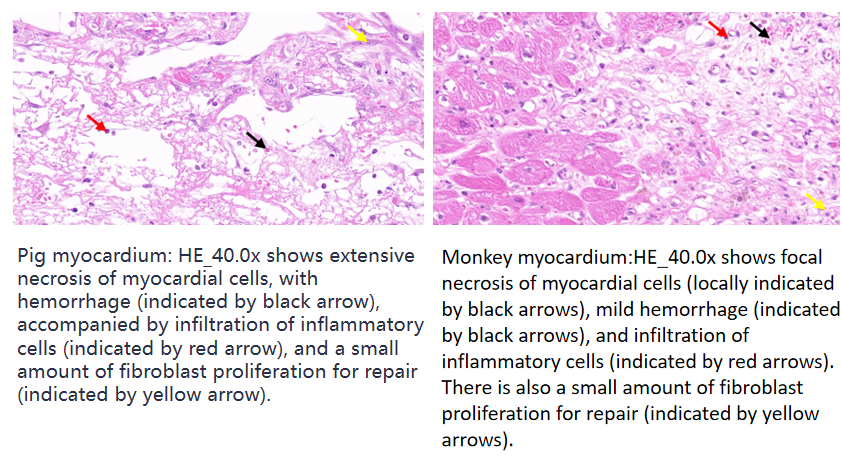Huan Wang, People's Republic of China
Resident physician
Department of Cardiovascular Surgery, The Affiliated Suzhou Hospital of Nanjing Medical University
Experimental study on transplantation of transgenic edited pig-primate transplantation of heterotopic hearts
Huan Wang1, Dianyuan Li1, Zhipeng Ren1, Ziqiang Dai1, Dengke Pan2, Gen Zhang1, Guanzheng Cui1, Shangxuan Li1.
1Department of Thoracic and Cardiovascular Surgery, Suzhou Hospital Affiliated to Nanjing Medical University, Su Zhou, People's Republic of China; 2Chengdu Zhongke Aoguo Biotechnology Co., Ltd., Nei jiang, People's Republic of China
Introduction: To explore the changing trend of cardiac function after allogeneic heterotopic heart transplantation with transgenic edited pig hearts, and the influence of the receptor's immune response on the donor heart, providing an experimental basis for the application of gene editing technology in the clinical field.
Methods: From December 16, 2023 to March 17, 2025, four cases of allogeneic and ectopic heart transplants between pigs and rhamus monkeys were completed. The functional status of transplanted plants under the load state after transplantation and the immune indicators of the recipients were observed.
Results: The longest case of recipient monkey has survived for 46 days and no hyperacute or acute immune rejection reactions have occurred. Pathological analysis showed minor myocardial damage in the monkey heart but more severe damage in the porcine heart, suggesting chronic immune rejection.
Conclusion: Transgenic editing technology offers the possibility of xenotransplantation, but its clinical application still requires further in-depth research.


References:
[1] Genetically edited pigs;Xenogeneic heart transplantation;Allograft Survival;Graft Rejection
Lectures by Huan Wang
| When | Session | Talk Title | Room |
|---|---|---|---|
|
Wed-01 16:20 - 17:10 |
Immunosuppression and Tolerance 2 | Application of immunosuppressive regimen in xenotransplantation of gene-edited porcine heart to rhesus macaque | Auditorium |
|
Wed-01 18:45 - 20:00 |
Poster Session 2 - October 1 from 18:45 to 20:00 | Experimental study on transplantation of transgenic edited pig-primate transplantation of heterotopic hearts | Atrium |
